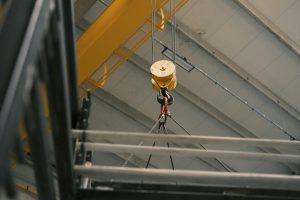How Remote Work Affects Commercial Real Estate Leasing
Remote work has become the new normal for many companies and employees around the world. As the COVID-19 pandemic continues to impact our daily lives, businesses have quickly adapted to a remote work setting in order to maintain operations and keep their employees safe. This shift has had a significant effect on various industries, including commercial real estate leasing. With the rise of remote work, the demand for office space and other commercial properties has changed drastically. In this article, we will explore how remote work has impacted commercial real estate leasing and what the future of this industry may look like.
The Rise of Remote Work
The concept of remote work is not new, but the pandemic has accelerated its widespread adoption. Businesses that previously were hesitant to embrace a remote work model have been forced to do so in order to continue functioning. This sudden shift has opened up new possibilities for employees, allowing them to work from the comfort of their own homes. This has also resulted in cost savings for businesses, as they no longer need to invest in expensive office spaces. As a result, the demand for commercial real estate leasing has decreased significantly.
The Impact on Office Leasing
One of the most significant impacts of remote work on commercial real estate leasing is the decrease in demand for office space. With employees working from home, companies no longer require the same amount of office space as before. This has led to a surplus of office space in many cities, with many companies downsizing or even closing their physical offices entirely. As a result, office leasing rates have dropped, and landlords are struggling to find tenants for their properties.
The Shift to Flexible Workspace Solutions
Amidst the decline in traditional office leasing, a new trend has emerged in the commercial real estate market – the rise of flexible workspace solutions. With remote work becoming the new normal, many employees are looking for alternatives to working from their homes. Flexible workspace solutions, such as coworking spaces and virtual offices, provide employees with a professional and collaborative environment to work in. These spaces also offer companies the flexibility to rent out space on a short-term basis, rather than committing to a long-term lease.
The Future of Commercial Real Estate Leasing
The long-term effects of remote work on commercial real estate leasing remain uncertain. While some businesses have announced plans to continue remote work even after the pandemic, others are eager to return to their traditional office spaces. This uncertainty has resulted in a hesitancy among companies to commit to long-term leases for office spaces. The commercial real estate market is expected to experience significant changes in the coming years, as landlords and tenants navigate the new landscape.
The Need for Adaptability
In order to thrive in the post-pandemic world, commercial real estate leasing companies will need to adapt to the changing needs of businesses and employees. This may include repurposing office spaces to cater to the demand for flexible workspace solutions, or incorporating more technology to enable remote work capabilities. Landlords must also be open to negotiating flexible lease terms and rental rates to attract tenants in this competitive market.
New Opportunities for Investment
While the pandemic has brought challenges to the commercial real estate market, it has also presented new opportunities for investment. As the demand for traditional office spaces declines, other sectors such as industrial and warehouse properties have seen an increase in demand. As businesses pivot to e-commerce and online operations, the need for storage and distribution spaces has risen. This presents a potential opportunity for investors to diversify their portfolios.
As the world continues to navigate through the pandemic, the remote work trend is likely to continue, even after the crisis subsides. The impact of remote work on commercial real estate leasing has been significant, and it will continue to shape the industry in the years to come. Adapting to the changing needs of businesses and employees, along with a willingness to explore new investment opportunities, will be key to thriving in the post-pandemic world of commercial real estate leasing.










